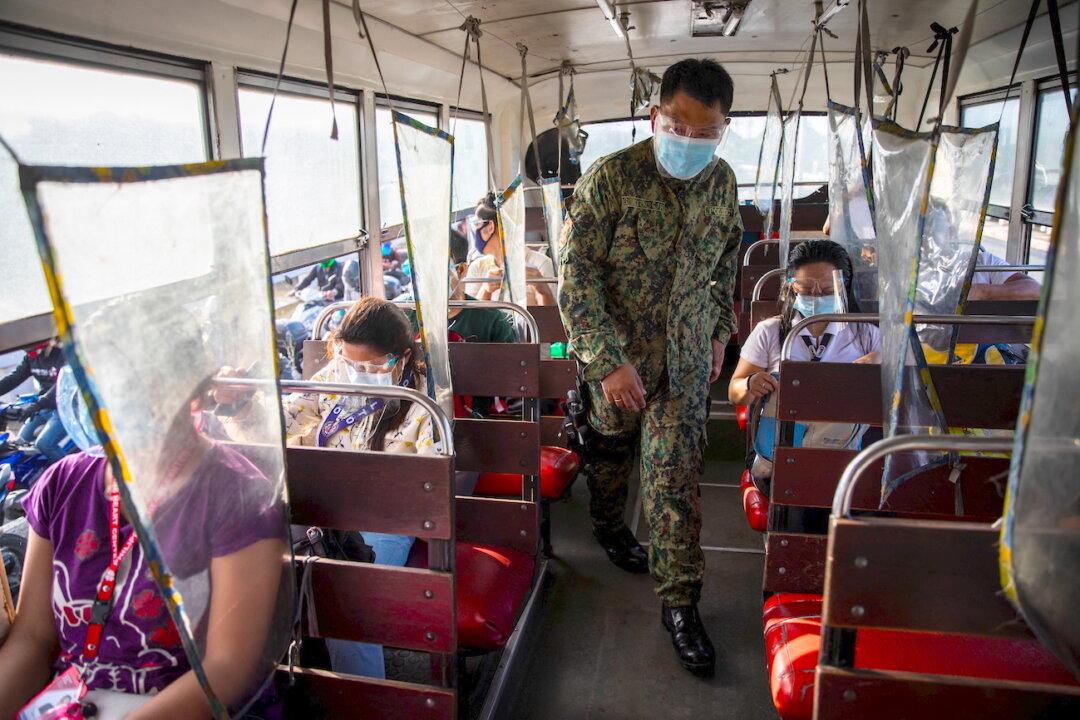The Philippine government on Jan. 12 imposed a “no vaccine, no ride” policy on public transportation in the country’s capital Metro Manila, following President Rodrigo Duterte’s order to arrest unvaccinated individuals who violate stay-at-home orders.
The government had earlier placed Metro Manila, a region with a population of over 13 million, under Alert Level 3 until the end of January. The country has seen a surge in the number of coronavirus cases, with 37,207 new cases reported on Friday.





